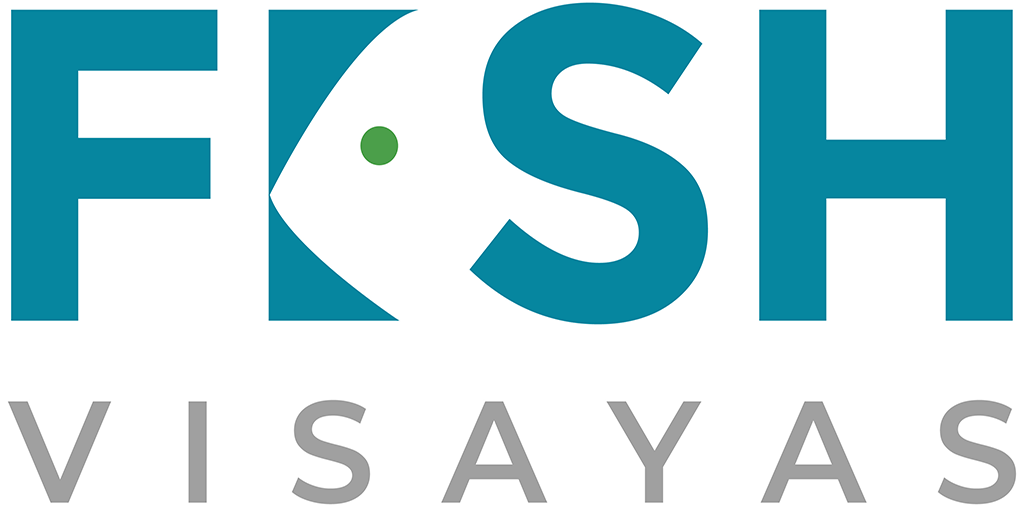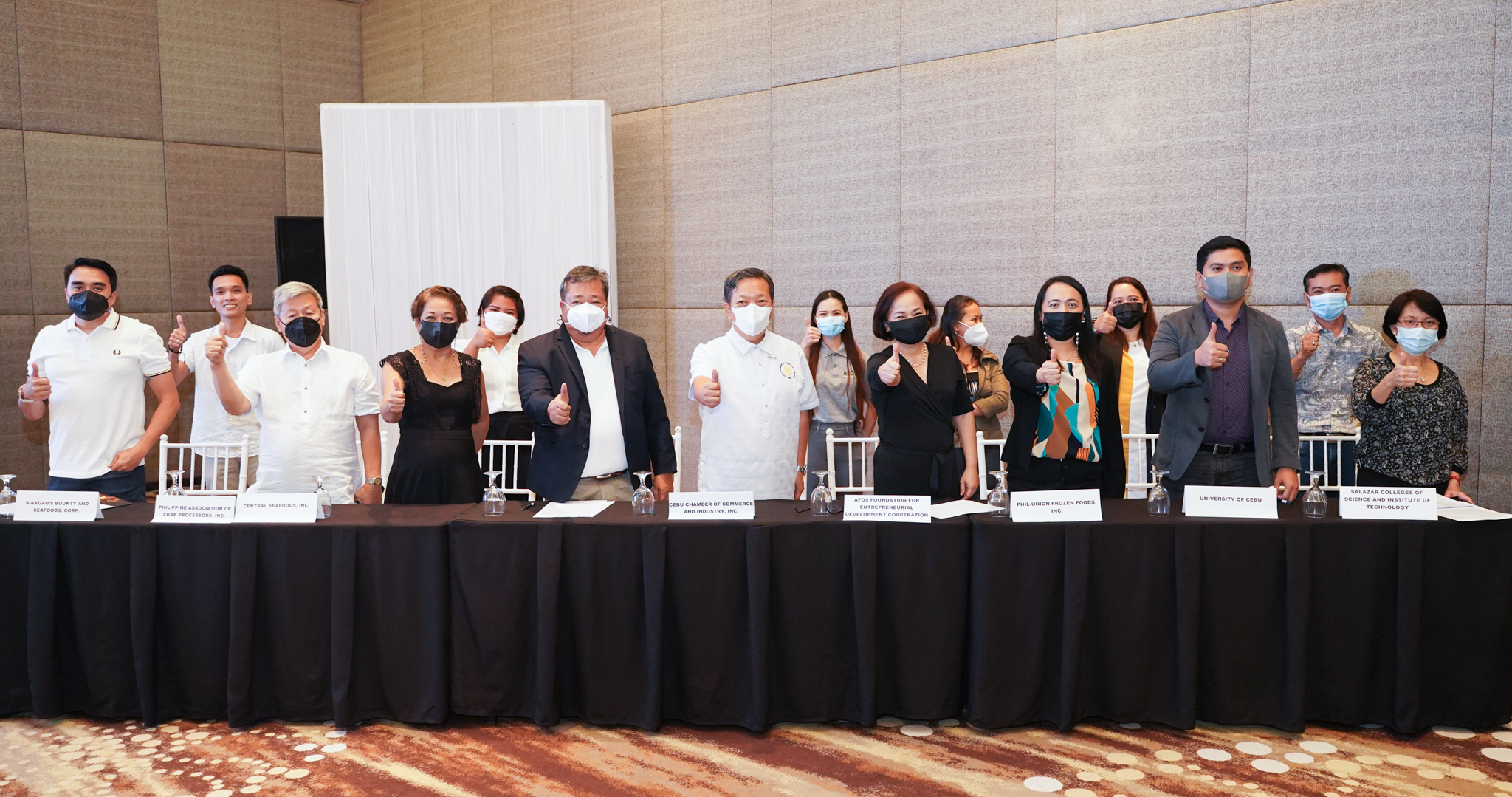
AFOS Foundation and CCCI-ACAS have signed a Memorandum of Understanding (MoU) with Central Seafoods, Inc, Philippine Association of Crab Processors, Inc., Phil-Union Frozen Foods, Inc., and Siargao’s Bounty & Seafoods, Corp., University of Cebu (UC) and Salazar Colleges of Science and Institute of Technology (SCSIT).
The ceremony was held at Waterfront Cebu City Hotel and Casino on February 28, 2022. It was attended by:
- AFOS Foundation – FISH Visayas Project Director Ms. Teresa Pono
- Cebu Chamber of Commerce and Industry – Pres. Felix Taguiam, Executive Director May Elizabeth Ybañez
- CCCI-ACAS Committee Chair and CCCI-BIC President Lito Maderazo
- President Joseph Nelson Bascones of Seafood Processing Cluster and Central Seafoods, Inc. and Philippine Association of Crab Processors, Inc.
- Ms. Marudina Villegas, VP, Planning & Management, on behalf of Pres. Kunho Choi of Phil-Union Frozen Foods, Inc.
- President Philip Señora II of Siargao’s Bounty & Seafoods, Corp.
- President and Chairman of the Board Engr. Alden Salazar of SCSIT
- Atty. Elijah Manuel Sarausadd, on behalf of Atty. Augusto Go, President of UC
The MoU signing puts the institutional commitments within a framework of clearly defined roles and responsibilities for the partner industries, academe, CCCI, and AFOS based on mutual understanding and trust in black and white.
Moreover, the memorandum will introduce the industry and Academe Cluster of the Seafood Processing Sector to the business community of Cebu. Furthermore, it will formalize the Industry-Academe Cluster member’s interests and commitment as a partner in implementing the DET Pilot Program.
Lastly, it will promote the FISH Visayas Project and Dual Education and Training to the Cebu Chamber of Commerce & Industry members. CCCI-ACAS has drafted the MoU by presenting it to industry and academe partners through Zoom and consolidating several comments to finalize it.
Despite several efforts and government programs, decreasing unemployment in the Philippines remains a big concern. The mismatch of job skills is frequently identified as one of the causes of rising unemployment, particularly among the youth. Graduates, in particular, lack the skills and abilities required by sectors. On the other hand, many businesses are unaware of the qualifications they require.
Work-based (practical training) and classroom-based (theoretical training) education are combined in dual system education programs. This is to overcome the job-skills gap and ensure that students receive the necessary knowledge and practical abilities to improve their employability.
Apprenticeships, on-the-job training, and internships, among other things, are examples of this technique. In addition, many industrialized countries, such as Australia, Germany, and Switzerland, have successfully implemented this method in their vocational education programs and reaped significant benefits.
The Dual Training System (DTS) was established in the Philippines in February 1994 by Republic Act No. 7686, or the Dual Training System Act of 1994. The law requires the Technical Education and Skills Development Authority (TESDA) to encourage, manage, and administer the dual training system and provide tax incentives to enable enterprises to participate.
According to studies conducted in the Philippines, DTS and other TVET methods foster industry partnerships, resulting in high employment rates.

